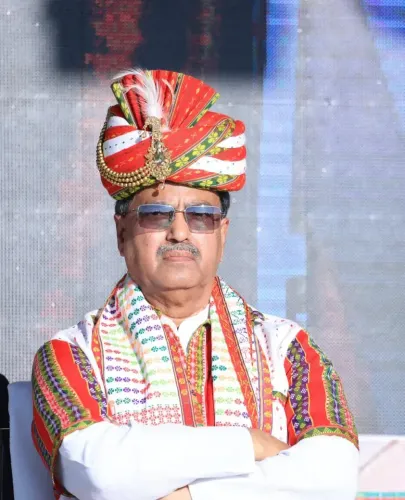Is Aadhaar Being Used to Modify Voter Lists? ECI Clarifies to SC

Synopsis
Key Takeaways
- Aadhaar is solely for identity verification in electoral rolls.
- It cannot be used to modify the voter list.
- The Supreme Court clarified its use in identity confirmation.
- Legal frameworks restrict Aadhaar's role in citizenship proof.
- ECI issued instructions to ensure compliance with these guidelines.
New Delhi, Nov 15 (NationPress) The Election Commission of India (ECI) informed the Supreme Court that the Aadhaar card is solely utilized for verifying the identity of individuals applying for inclusion in electoral rolls, and is not used as proof of citizenship or for adding or removing names from the voter list, according to a lawyer's statement on Saturday.
In an affidavit submitted to the Apex Court, the electoral body clarified that it has issued guidelines to officials indicating that the Aadhaar card should not serve as a basis for modifying the voter list as stipulated in Section 23(4) of the Representation of the People Act.
The ECI emphasized that the Aadhaar card is exclusively employed to confirm a person's identity during the Special Intensive Revision (SIR) of electoral rolls.
"The Aadhaar card does not serve as proof of citizenship," declared the ECI in its affidavit presented on Friday for review by a bench led by Justice Surya Kant, which is currently addressing the SIR issue.
The Commission asserted that the inclusion or exclusion of a person's name from the voter list cannot be justified solely based on the existence or absence of an Aadhaar card.
The Supreme Court, in its order dated September 8, clarified that the Aadhaar card could be utilized to confirm identity.
"Following this, the ECI has directed the Chief Electoral Officer of Bihar that the Aadhaar card should only be used for identification and should not be recognized as proof of citizenship according to Section 9 of the Aadhaar Act, nor should it be utilized for changes in the voter list as per Section 23(4) of the Representation of the People Act," the affidavit stated.
The Commission further referenced UIDAI's Office Memorandum (O.M.) from August 22, 2023, which clarified that Aadhaar does not constitute proof of citizenship, residence, or date of birth.
Additionally, it pointed to Section 9 of the Aadhaar Act 2016, which clarifies that the Aadhaar number is not proof of citizenship or residency.
Previously, in response to the Court's directive, the ECI issued instructions on September 9 to all Chief Electoral Officers regarding the use of the Aadhaar Card strictly for identity verification and not as proof of citizenship concerning Section 9 of the Aadhaar Act, 2016, and Section 23(4) of the RP Act, 1950 in relation to the revised voter list of Bihar.
In response to a petitioner's request for directives to limit the use of Aadhaar solely for identity verification and to prevent its use as proof of date of birth in Form-6 applications, the ECI affirmed that the legal framework already restricts Aadhaar to identity purposes, aligning its instructions with the statutory provisions under the 1950 Act and the Aadhaar Act, 2016.









